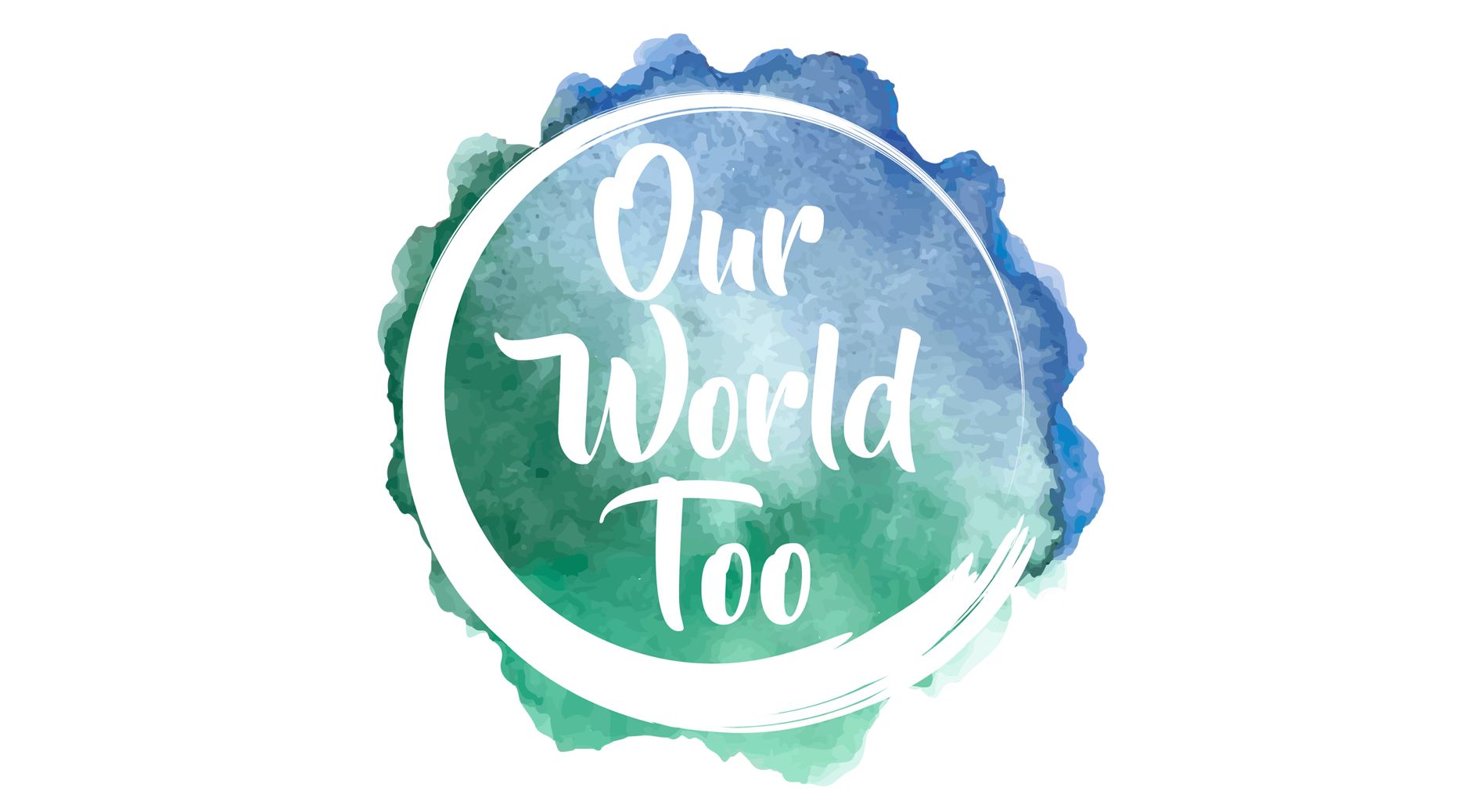About
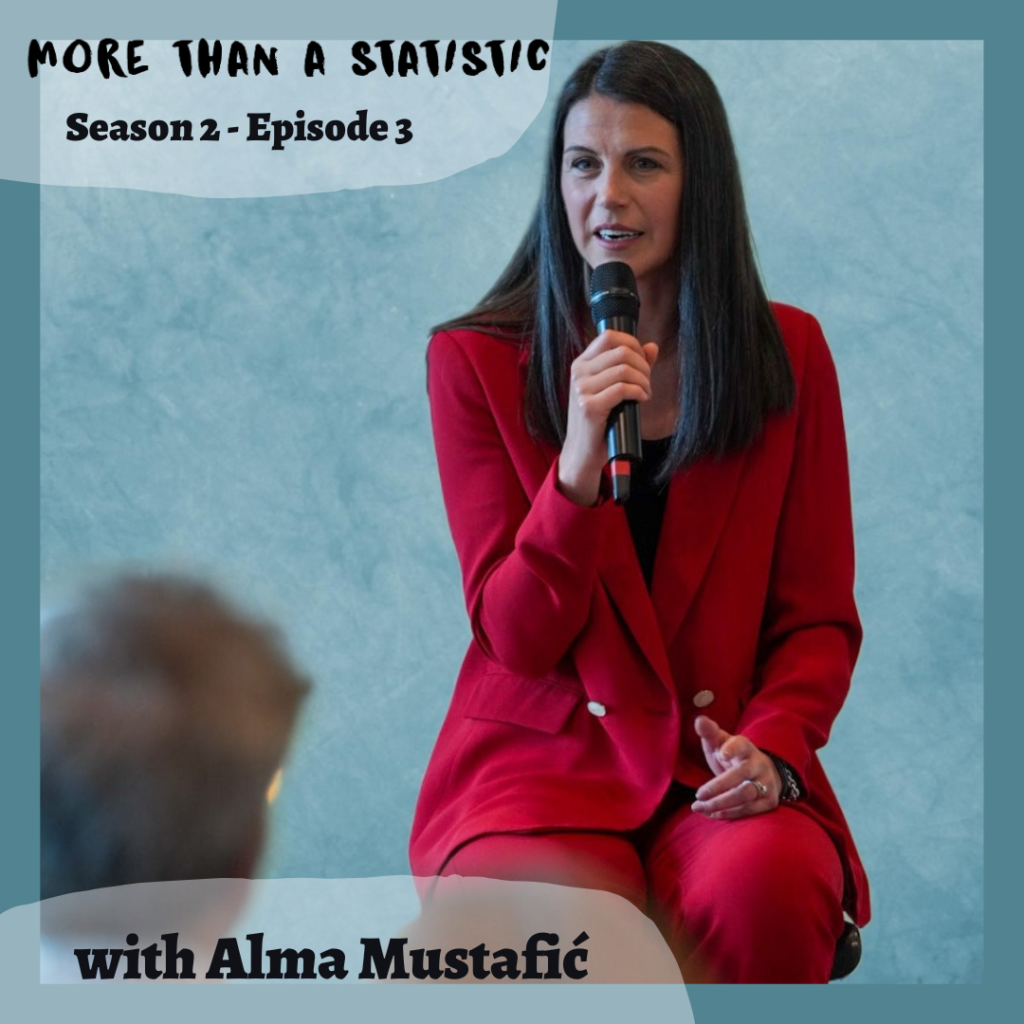
Surviving the Srebrenica Genocide: Holding the Dutch state responsible and raising awareness about genocide through theatre with Alma Mustafić.
In 1995, 8,372 Muslim men and boys were systematically murdered in the Srebrenica Genocide by Serb nationalist forces in front of the UN Dutchbat Peacekeepers. 29 years later, the remains of the victims are still being found amid growing denial of the genocide by Serb nationalists. In this episode, Alma speaks about her experiences of surviving genocide, holding the Dutch state responsible for murder, raising awareness about the Bosnian Genocide through theatre, and what she believes we can all learn from the Srebrenica Genocide.
Listen to our podcasts on:

Discussing the mental health impacts of surviving displacement, war, and genocide with Selma Bacevac.
When people are displaced, the physical needs of providing food, water and shelter are prioritised, but the effects of war and forced displacement go beyond just physical impacts and needs. The mental health needs of people who have been displaced often go unmet for reasons ranging from stigma to lack of resources. In this episode, Selma shares her journey from being made a refugee because of the Bosnian Genocide to finding her way to becoming a psychotherapist to guide others through their trauma.
Listen to our podcasts on:
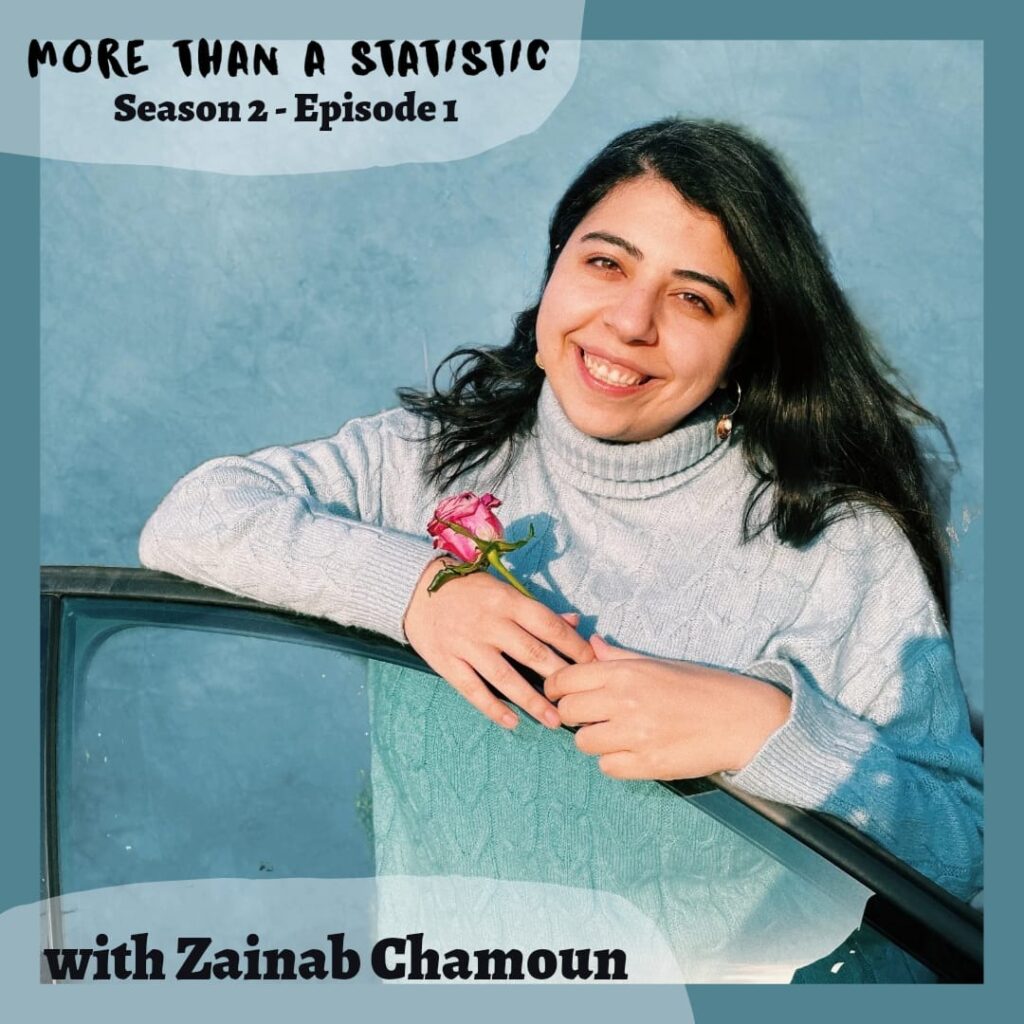
Living under the shadow of Israeli aggression: Discussing the realities of living in South Lebanon with Zainab Chamoun.
South Lebanon has been misrepresented by portraying the region as having a ‘culture of death’. In this episode, Zainab speaks about her experiences of living through the 2006 Lebanon War against the colonial settler state of Israel and the current situation in South Lebanon in light of the ongoing Palestinian Genocide.
You can read Zainab’s article in Missing Perspectives here:
On ‘neighbouring’ the oppressor: living under the constant threat of war
If you would like to support content creators from South Lebanon by amplifying their voices, please follow:
Listen to our podcasts on:
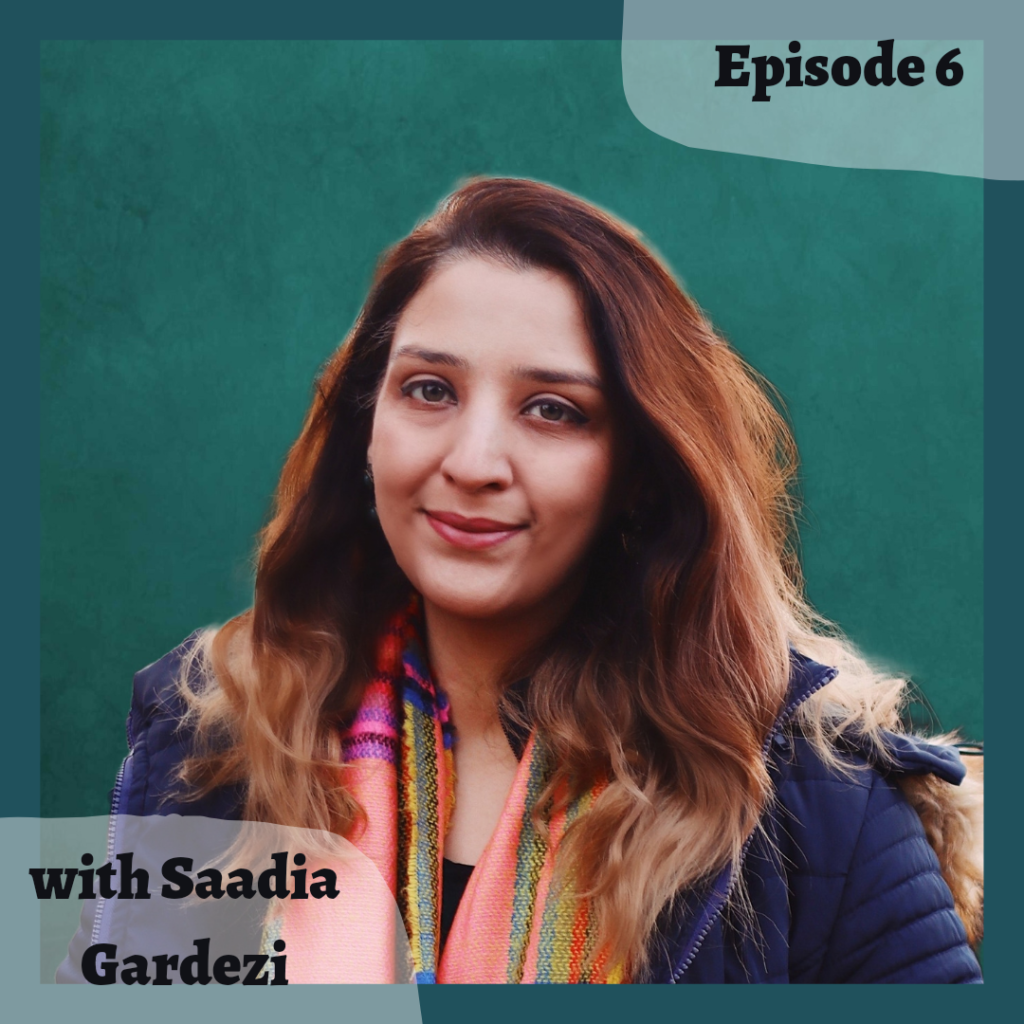
How can VR technology help preserve memory? Everything you need to know about Project Dastaan and their work to raise awareness about the 1947 Partition, with Saadia Gardezi.
For many, the mention of the Partition of Pakistan and India is overshadowed by politically charged narratives of 1947, very rarely are survivors of Partition provided with platforms to share their stories and experiences. In this episode, Saadia speaks about Project Dastaan, a peace-building initiative which examines the human impact of global migration through the lens of the largest forced migration in recorded history, the 1947 Partition of India and Pakistan.
Saadia Gardezi is Co-Founder of Project Dastaan, a multimedia project focused on survivor’s stories from the partition of India in 1947.
Listen to our podcasts on:
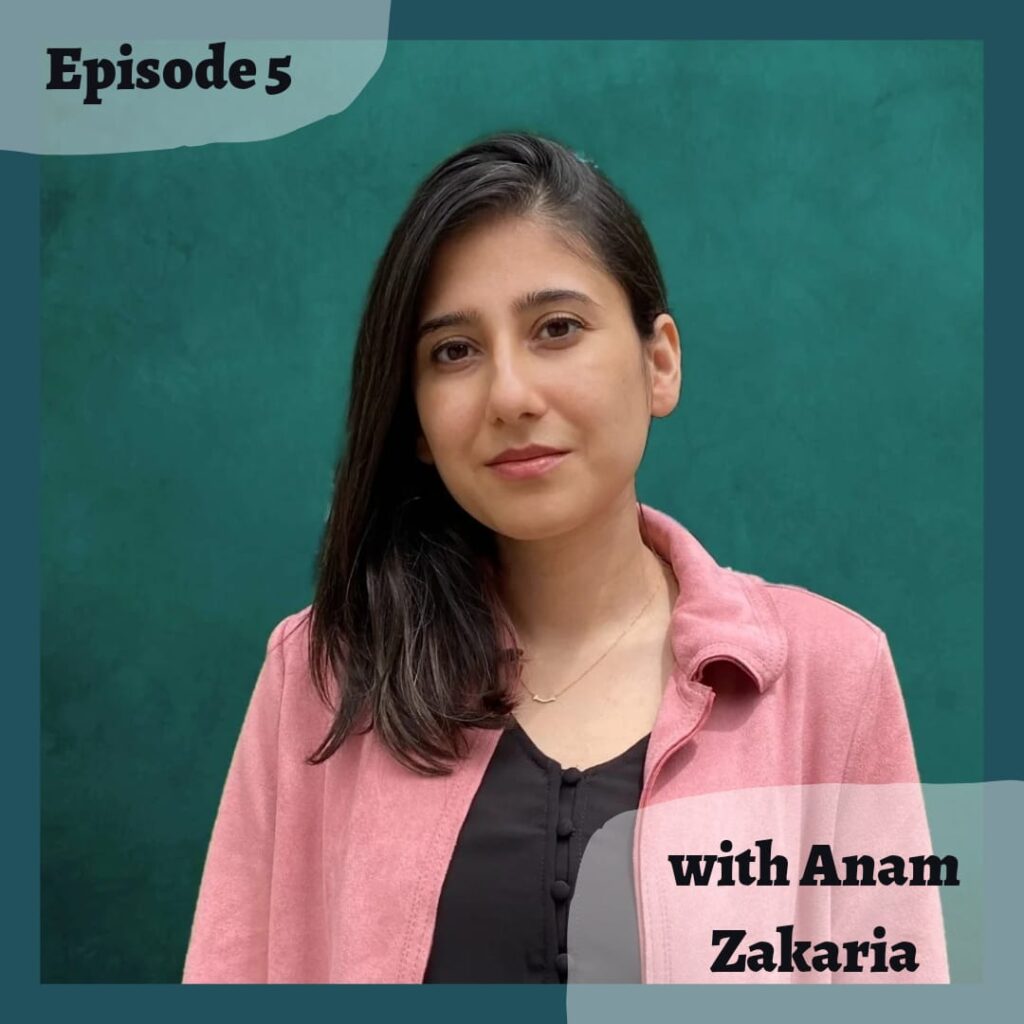
Combating state narratives about partition and 1971 through oral histories with Anam Zakaria
The Partition of the subcontinent resulted in one of the bloodiest partitions in history and caused the rapid displacement of millions of people overnight. In this episode, Anam shares her personal journey of learning more about 1947 and 1971, the importance of collecting oral histories to combat state narratives and what she hopes her books can achieve.
Anam Zakaria is an award-winning author, freelance journalist and the co-founder of Qissa, a storytelling platform for immigrants. She writes frequently on issues of violence, memory, narrative making and the construction of the ‘other’. Her work has appeared in Dawn, Al Jazeera, The New York Times and CBC among other media outlets and has been translated into several languages. Her latest book is 1971: A People’s History from Bangladesh, Pakistan and India.
Listen to our podcasts on:
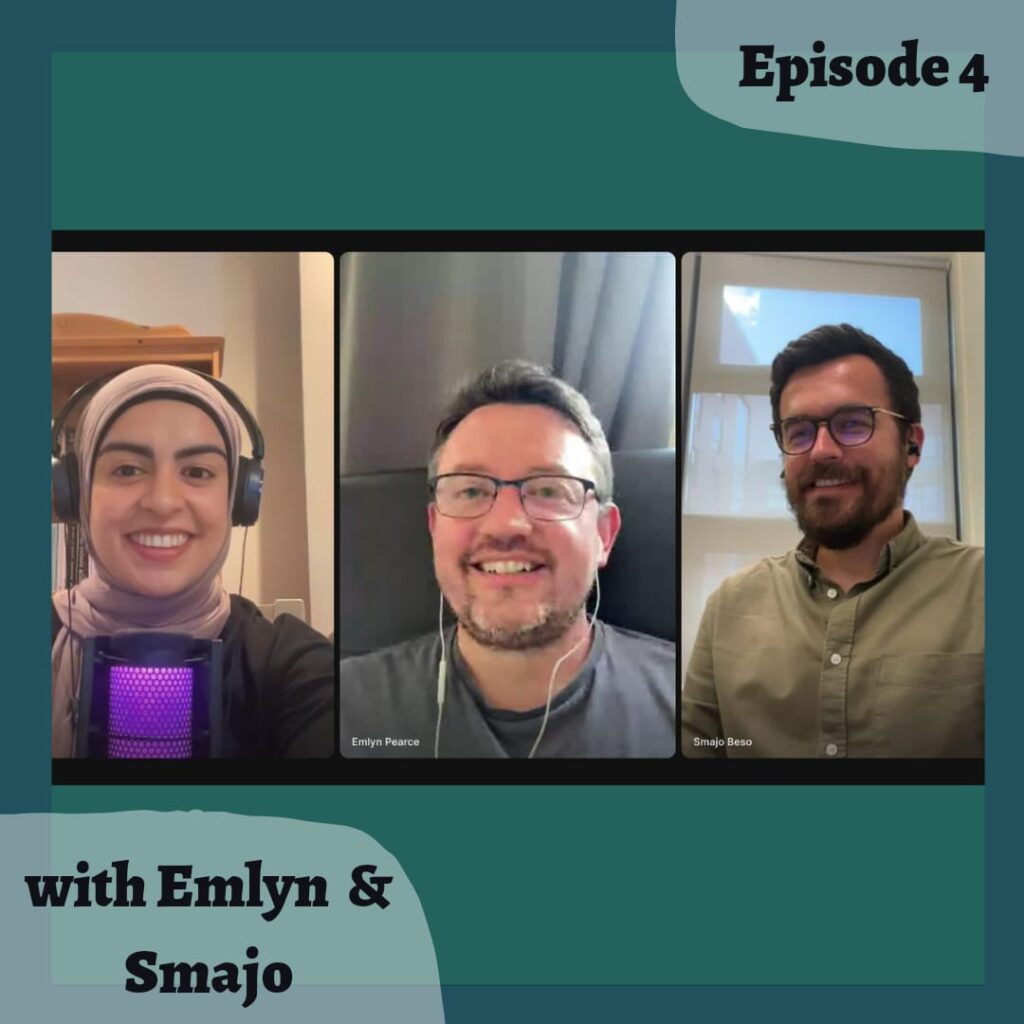
Using storytelling to raise awareness about refugee journeys and the Bosnian Genocide with Emlyn Pearce and Smajo Bešo
Storytelling is an art that allows us to see the world through someone else’s eyes and acts as a record to prevent historical revisionism. In this episode, we’re joined by Smajo and Emlyn to talk about how storytelling can rehumanise the rhetoric surrounding refugees and raise awareness about the Bosnian Genocide by placing the narrative where it belongs, with the people themselves.
Emlyn Pearce
Emlyn was born in Johannesburg in 1982, where his parents and grandparents were involved in the anti-apartheid movement. His grandmother, Anna Pearce, was a member of the Black Sash and became the first white person to testify against the apartheid government in court when she took the stand at the inquiry into the Paarl riots. Emlyn and his family emigrated and settled in Durham in 1994. He read English Literature at Warwick University before moving to London and working in television.
In 2015 Emlyn established a Facebook blog promoting humanity that now has 48,000 followers. Seven of his posts have gone viral, being shared more than 10,000 times each and receiving coverage in the wider media. He also has 66,000 followers on TikTok where his videos have achieved 12 million views and 1.2 million ‘likes’ since October 2022. Emlyn’s writing has been featured by Buzzfeed, the Daily Mirror, the Huffington Post, The Sun, Manchester Evening News, Metro, Pink News, LadBible, the Poke, Metro and The Independent.
He is also a trustee of Smajo’s Bosnian Genocide Educational Trust.
Smajo Bešo
At the outbreak of the Bosnian war in 1992 Smajo was growing up in the ethnically mixed village of Barane in eastern Herzegovina. Him and his family were forcibly displaced in April 1993 when the HVO under political direction started imprisoning the Bosniak (Muslim) contingent of its own army and forcibly expelling Bosniaks and Serb civilians from the area.
The family rejected feelings of hate and the temptations of revenge and eventually found refuge in the UK. Smajo grew up in Newcastle and studied architecture at Newcastle University. He has been working to aid cross-cultural and inter-faith understanding rather than fuelling revenge and divergence through the teaching and learning of the Bosnian Genocide for several years. In 2020, he co-founded the Bosnian Genocide Educational Trust which aims to humanise history by replacing faceless statistics and numbers with real human experience through the medium of storytelling. He is on the Remembering Srebrenica Survivor Advisory board as well as the chair of the North East Board. He is also part of the University of Sanctuary Working Group for Newcastle University.
Listen to our podcasts on:
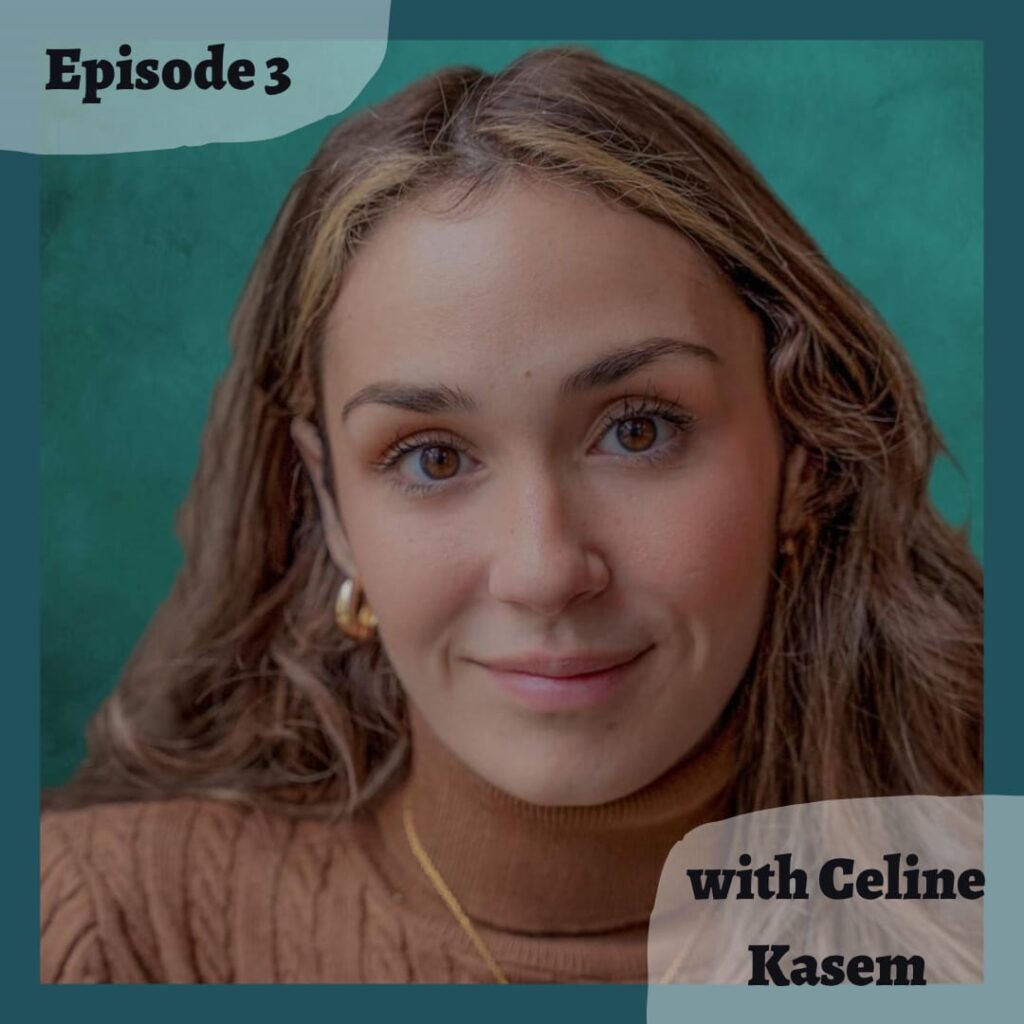
Highlighting the humanitarian impacts of the Syrian crisis with Celine Kasem
12 years have passed since the beginning of the Syrian crisis during which millions of people have been displaced. Celine speaks about the ongoing humanitarian crisis, the politicisation of aid and the treatment of Syrian refugees.
Listen to our podcasts on:
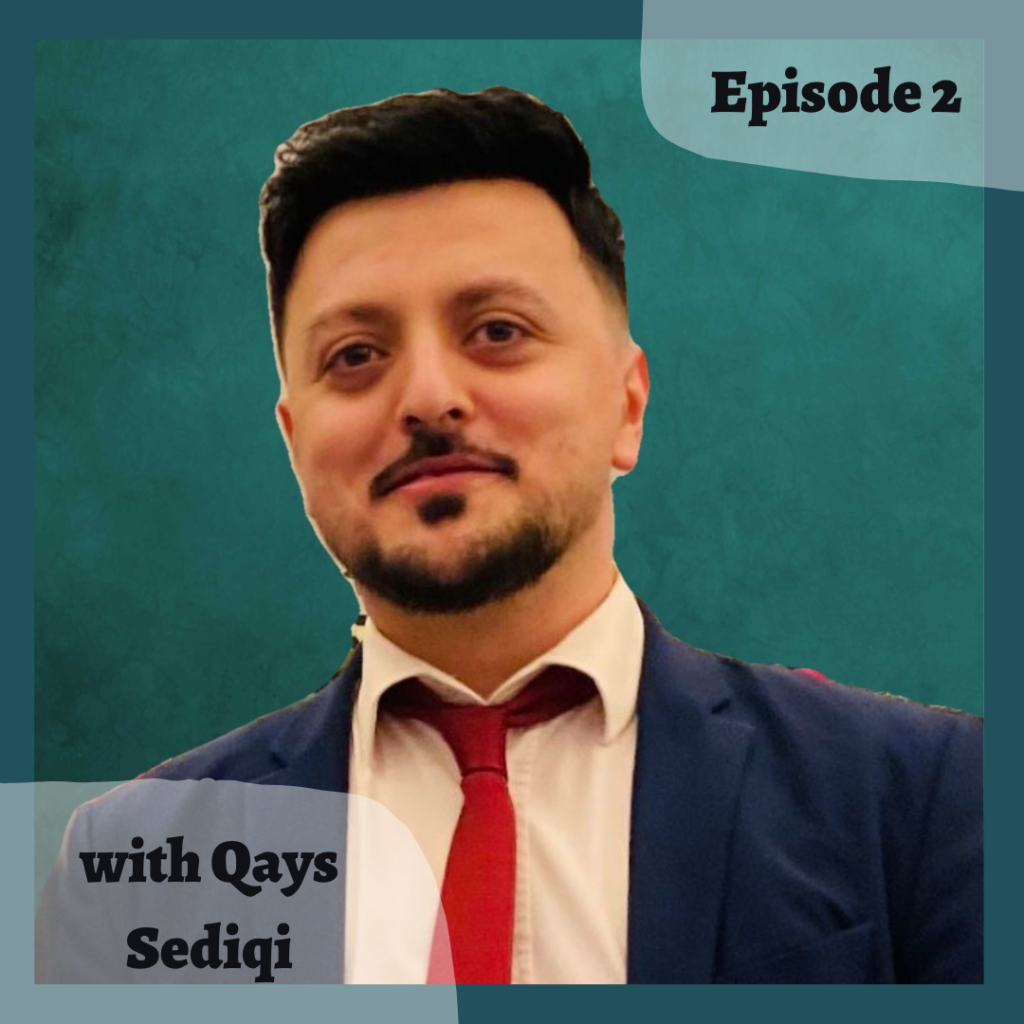
Discussing the Illegal Migration Bill and debunking myths about seeking asylum with Qays Sediqi
The rhetoric around seeking asylum in the UK has steadily gotten worse since 2015. Most recently, this has culminated in Suella Braverman’s brainchild – the Illegal Migration Bill. In this episode, Qays shares how his personal journey as a former refugee led him to become a human rights lawyer and commonly held myths around seeking asylum.
Qays Sediqi is a former refugee who is now a human rights solicitor and head of public law advocating for the rights of asylum seekers. His recent work includes the ongoing Rwanda litigation and Afghan Relocation and Assistance Policy challenges.
Listen to our podcasts on:
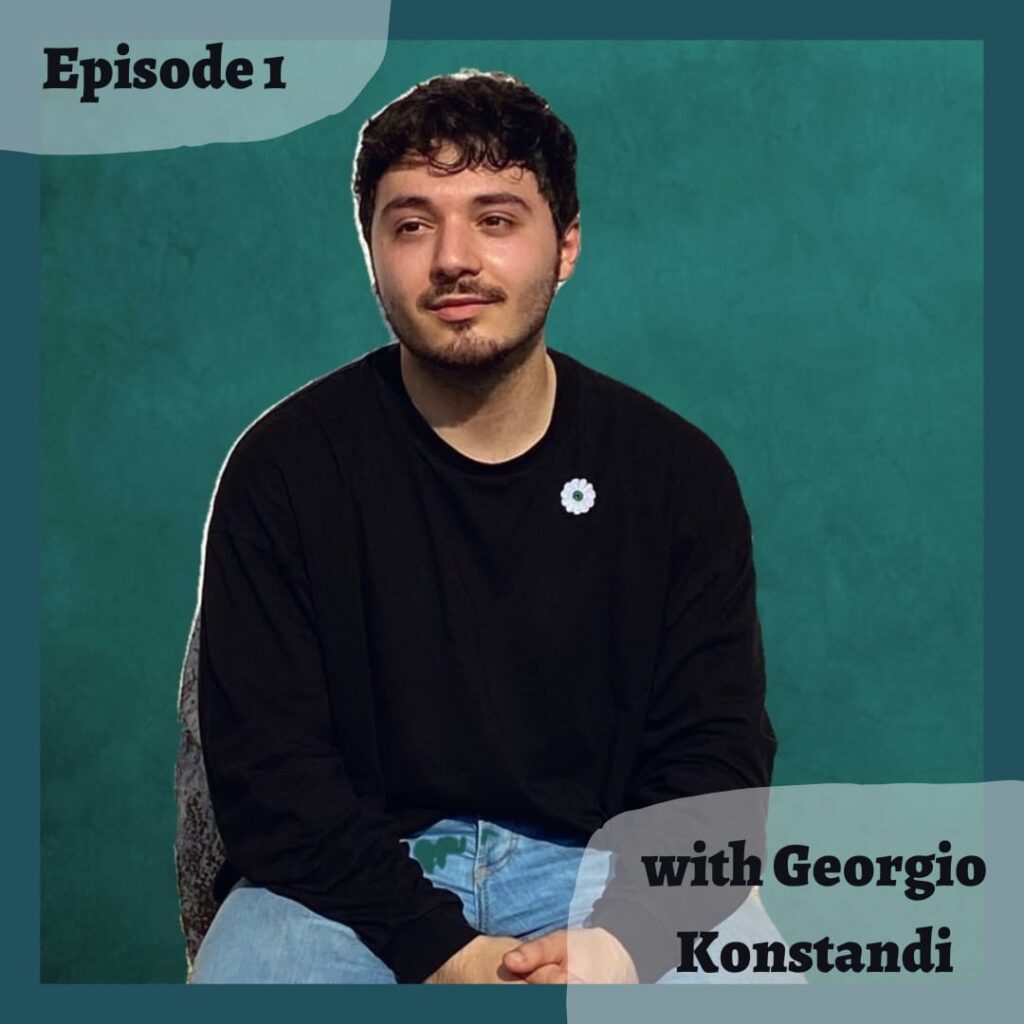
Raising awareness about the Bosnian Genocide with Georgio Konstandi
The Bosnian Genocide lasted from 1992-1995 and saw the worst atrocities committed in Europe since WW2.
In this episode, Georgio speaks about his projects dedicated to raising awareness about the Bosnian Genocide by working with survivors. We also speak about the dehumanising language used to justify the genocide and why it continues to be a lesson for all of us about what can happen when discrimination and hate speech goes unchecked.
Georgio Konstandi is a Bosnian Genocide researcher at University College London. He is the founder of the genocide education project, “Voices from the Drina“, which is creating a new educational resource for British schools and universities on the genocide against Bosniaks in Eastern Bosnia (1992-1995). He is the founder and editor of the news journal and podcast, The Scroll. He is also an activist concerned with fighting genocide denial and relativism regarding the Bosnian Genocide.
Find out more about Georgio’s projects:
https://twitter.com/georgiokon
https://twitter.com/dearsrebrenica
https://the-scroll.co.uk
Listen to our podcasts on:
Season 1

How can VR technology help preserve memory? Everything you need to know about Project Dastaan and their work to raise awareness about the 1947 Partition, with Saadia Gardezi.
For many, the mention of the Partition of Pakistan and India is overshadowed by politically charged narratives of 1947, very rarely are survivors of Partition provided with platforms to share their stories and experiences. In this episode, Saadia speaks about Project Dastaan, a peace-building initiative which examines the human impact of global migration through the lens of the largest forced migration in recorded history, the 1947 Partition of India and Pakistan.
Saadia Gardezi is Co-Founder of Project Dastaan, a multimedia project focused on survivor’s stories from the partition of India in 1947.
Listen to our podcasts on:

Combating state narratives about partition and 1971 through oral histories with Anam Zakaria
The Partition of the subcontinent resulted in one of the bloodiest partitions in history and caused the rapid displacement of millions of people overnight. In this episode, Anam shares her personal journey of learning more about 1947 and 1971, the importance of collecting oral histories to combat state narratives and what she hopes her books can achieve.
Anam Zakaria is an award-winning author, freelance journalist and the co-founder of Qissa, a storytelling platform for immigrants. She writes frequently on issues of violence, memory, narrative making and the construction of the ‘other’. Her work has appeared in Dawn, Al Jazeera, The New York Times and CBC among other media outlets and has been translated into several languages. Her latest book is 1971: A People’s History from Bangladesh, Pakistan and India.
Listen to our podcasts on:

Using storytelling to raise awareness about refugee journeys and the Bosnian Genocide with Emlyn Pearce and Smajo Bešo
Storytelling is an art that allows us to see the world through someone else’s eyes and acts as a record to prevent historical revisionism. In this episode, we’re joined by Smajo and Emlyn to talk about how storytelling can rehumanise the rhetoric surrounding refugees and raise awareness about the Bosnian Genocide by placing the narrative where it belongs, with the people themselves.
Emlyn Pearce
Emlyn was born in Johannesburg in 1982, where his parents and grandparents were involved in the anti-apartheid movement. His grandmother, Anna Pearce, was a member of the Black Sash and became the first white person to testify against the apartheid government in court when she took the stand at the inquiry into the Paarl riots. Emlyn and his family emigrated and settled in Durham in 1994. He read English Literature at Warwick University before moving to London and working in television.
In 2015 Emlyn established a Facebook blog promoting humanity that now has 48,000 followers. Seven of his posts have gone viral, being shared more than 10,000 times each and receiving coverage in the wider media. He also has 66,000 followers on TikTok where his videos have achieved 12 million views and 1.2 million ‘likes’ since October 2022. Emlyn’s writing has been featured by Buzzfeed, the Daily Mirror, the Huffington Post, The Sun, Manchester Evening News, Metro, Pink News, LadBible, the Poke, Metro and The Independent.
He is also a trustee of Smajo’s Bosnian Genocide Educational Trust.
Smajo Bešo
At the outbreak of the Bosnian war in 1992 Smajo was growing up in the ethnically mixed village of Barane in eastern Herzegovina. Him and his family were forcibly displaced in April 1993 when the HVO under political direction started imprisoning the Bosniak (Muslim) contingent of its own army and forcibly expelling Bosniaks and Serb civilians from the area.
The family rejected feelings of hate and the temptations of revenge and eventually found refuge in the UK. Smajo grew up in Newcastle and studied architecture at Newcastle University. He has been working to aid cross-cultural and inter-faith understanding rather than fuelling revenge and divergence through the teaching and learning of the Bosnian Genocide for several years. In 2020, he co-founded the Bosnian Genocide Educational Trust which aims to humanise history by replacing faceless statistics and numbers with real human experience through the medium of storytelling. He is on the Remembering Srebrenica Survivor Advisory board as well as the chair of the North East Board. He is also part of the University of Sanctuary Working Group for Newcastle University.
Listen to our podcasts on:

Highlighting the humanitarian impacts of the Syrian crisis with Celine Kasem
12 years have passed since the beginning of the Syrian crisis during which millions of people have been displaced. Celine speaks about the ongoing humanitarian crisis, the politicisation of aid and the treatment of Syrian refugees.
Listen to our podcasts on:

Discussing the Illegal Migration Bill and debunking myths about seeking asylum with Qays Sediqi
The rhetoric around seeking asylum in the UK has steadily gotten worse since 2015. Most recently, this has culminated in Suella Braverman’s brainchild – the Illegal Migration Bill. In this episode, Qays shares how his personal journey as a former refugee led him to become a human rights lawyer and commonly held myths around seeking asylum.
Qays Sediqi is a former refugee who is now a human rights solicitor and head of public law advocating for the rights of asylum seekers. His recent work includes the ongoing Rwanda litigation and Afghan Relocation and Assistance Policy challenges.
Listen to our podcasts on:

Raising awareness about the Bosnian Genocide with Georgio Konstandi
The Bosnian Genocide lasted from 1992-1995 and saw the worst atrocities committed in Europe since WW2.
In this episode, Georgio speaks about his projects dedicated to raising awareness about the Bosnian Genocide by working with survivors. We also speak about the dehumanising language used to justify the genocide and why it continues to be a lesson for all of us about what can happen when discrimination and hate speech goes unchecked.
Georgio Konstandi is a Bosnian Genocide researcher at University College London. He is the founder of the genocide education project, “Voices from the Drina“, which is creating a new educational resource for British schools and universities on the genocide against Bosniaks in Eastern Bosnia (1992-1995). He is the founder and editor of the news journal and podcast, The Scroll. He is also an activist concerned with fighting genocide denial and relativism regarding the Bosnian Genocide.
Find out more about Georgio’s projects:
https://twitter.com/georgiokon
https://twitter.com/dearsrebrenica
https://the-scroll.co.uk
